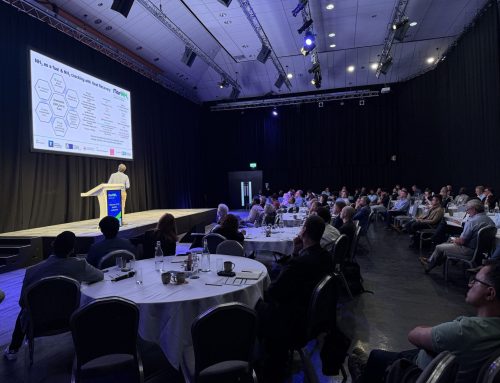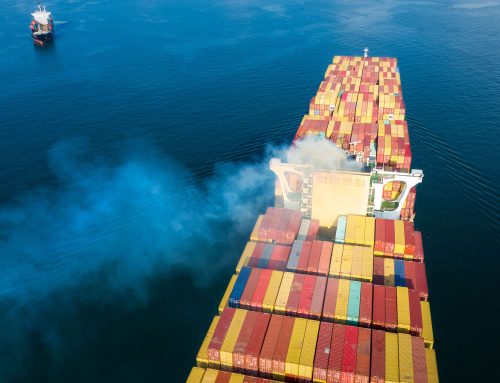A research programme focused on developing engines for commercial shipping that run on green ammonia to reduce greenhouse gas emissions has been endorsed by H. E. President Mohamed Nasheed, Climate Ambassador for the Climate Vulnerable Forum, at the inaugural meeting of its international advisory board.
“MariNH3” is a five-year research programme to develop new and disruptive engine technology that will significantly cut greenhouse gases and pollution emitted by diesel powered marine vessels.
The five-year, £5.5m EPSRC funded research project is led by University of Nottingham, along with University of Birmingham, University of Brighton, Cardiff University and the Science and Technologies Facilities Council. They are supported by over 20 industry partners including Dolphin N2, Ricardo, MAHLE Powertrain and the Department of Transport Maritime and Coastguard Agency.
Chaired by Dr Mike Mason, Convener of the Green Ammonia Working Group, the programme’s international advisory board comprises leaders in the field of green ammonia production and use. They provide guidance and expert opinion on research strategy, results and dissemination.

H. E. President Mohamed Nasheed, Speaker of Majlis / Former President of the Maldives
He was the Maldives’ first democratically elected president. In 2009, in a symbolic cry for help over rising sea levels that threaten the tropical archipelago’s existence, he instigated the famous Underwater Cabinet Meeting.
His address gave a real focus to the importance of climate change, net zero emissions and the contribution of the MariNH3research project to that ambition.
He said: “Climate change poses huge threats to nations like mine and threatens our very existence. If left unchecked, rising sea levels will wipe us off the planet. So, as a climate change campaigner I’m excited by this new technology. And as a politician I’m interested to see how quickly we can deploy it to improve daily lives.
I congratulate you on the project, but also appeal to you to bring your technology out of the lab and into boats and ships so we can move away from diesel. As the climate emergency gathers, we need to employ these technologies faster than the climate is changing.”
Professor Alasdair Cairns, Programme Director of the MariNH3project added: “It was a privilege to welcome H. E. President Nasheed to the inaugural meeting of our international advisory board. We know that our research has the potential to make significant reductions in greenhouse gas emissions for commercial shipping worldwide, but hearing an impassioned plea from an individual nation who is under real threat from rising sea levels brings this into sharp perspective.
There’s currently significant interest in green ammonia as a fuel for decarbonised commercial shipping where mega tonne ships are sailing across oceans in a single voyage. Ammonia could have diesel-like efficiency and energy density, and is cheap and easy to store as a liquid fuel. Our work will provide a road map of vessel size, types and propulsion types.”

